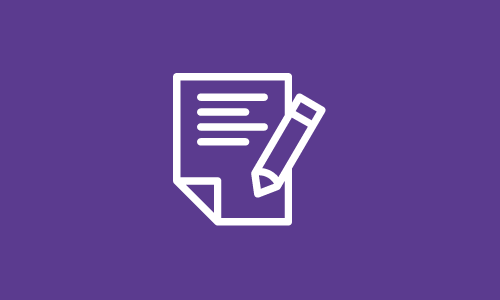Student growth & accountability policies
A majority of states include student growth estimates in accountability measures. Research suggests that policies holding schools accountable for growth, rather than achievement alone, are likely to support efforts around college readiness and other important long-term student outcomes. Our research provides insight to help inform measurement of academic achievement and growth for students and schools.


A general approach to measuring test-taking effort on computer-based tests
The current study outlines a general process for measuring item-level effort that can be applied to an expanded set of item types and test-taking behaviors (such as omitted or constructed responses). This process, which is illustrated with data from a large-scale assessment program, should improve our ability to detect non-effortful test taking and perform individual score validation.
By: Steven Wise, Lingyun Gao
Topics: Measurement & scaling, Innovations in reporting & assessment, Student growth & accountability policies


In this article, we examined the prevalence of rapid guessing to determine if this behavior varied by grade, subject, and teacher, and evaluated if rapid guessing influenced teacher value-added estimates. We observed differences in rapid guessing across grades, subjects, and teachers; however, this behavior did not appear to have a substantive effect on teacher value-added estimates.
By: Andrew Rice
Topics: School & test engagement, Student growth & accountability policies


Achievement gaps are a metric of fundamental importance to U.S. practice and policy. Gap estimates are often used to measure the effectiveness and fairness of the education system at a given point in time, over the course of decades, and as children progress through school.
By: James Soland
Topics: Equity, School & test engagement, Student growth & accountability policies


Student test engagement and its impact on achievement gap estimates
In this Brookings Institute Chalkboard blog, James Soland shares his work investigating how student test engagement may shape achievement gaps.
By: James Soland
Topics: School & test engagement, Student growth & accountability policies


In this study, we examine the impact of two techniques to account for test disengagement—(a) removing unengaged test takers from the sample and (b) adjusting test scores to remove rapidly guessed items—on estimates of school contributions to student growth, achievement gaps, and summer learning loss.
By: Megan Kuhfeld, James Soland
Topics: Measurement & scaling, School & test engagement, Student growth & accountability policies


Reconciling long-term education policy goals with short-term school accountability models
Schools are increasingly held accountable for their contributions to students’ academic growth in math and reading. Under The Every Student Succeeds Act, most states are estimating how much schools improve student achievement over time and using those growth metrics to identify the bottom 5% of schools for remediation.
Topics: Measurement & scaling, Growth modeling, Student growth & accountability policies


In this study, we apply the Compound Polynomial or “CP” model in a school evaluation context. The CP model addresses the seasonality of student test scores by simultaneously estimating between- and within-year growth.
Topics: Growth modeling, Seasonal learning patterns & summer loss, Student growth & accountability policies


